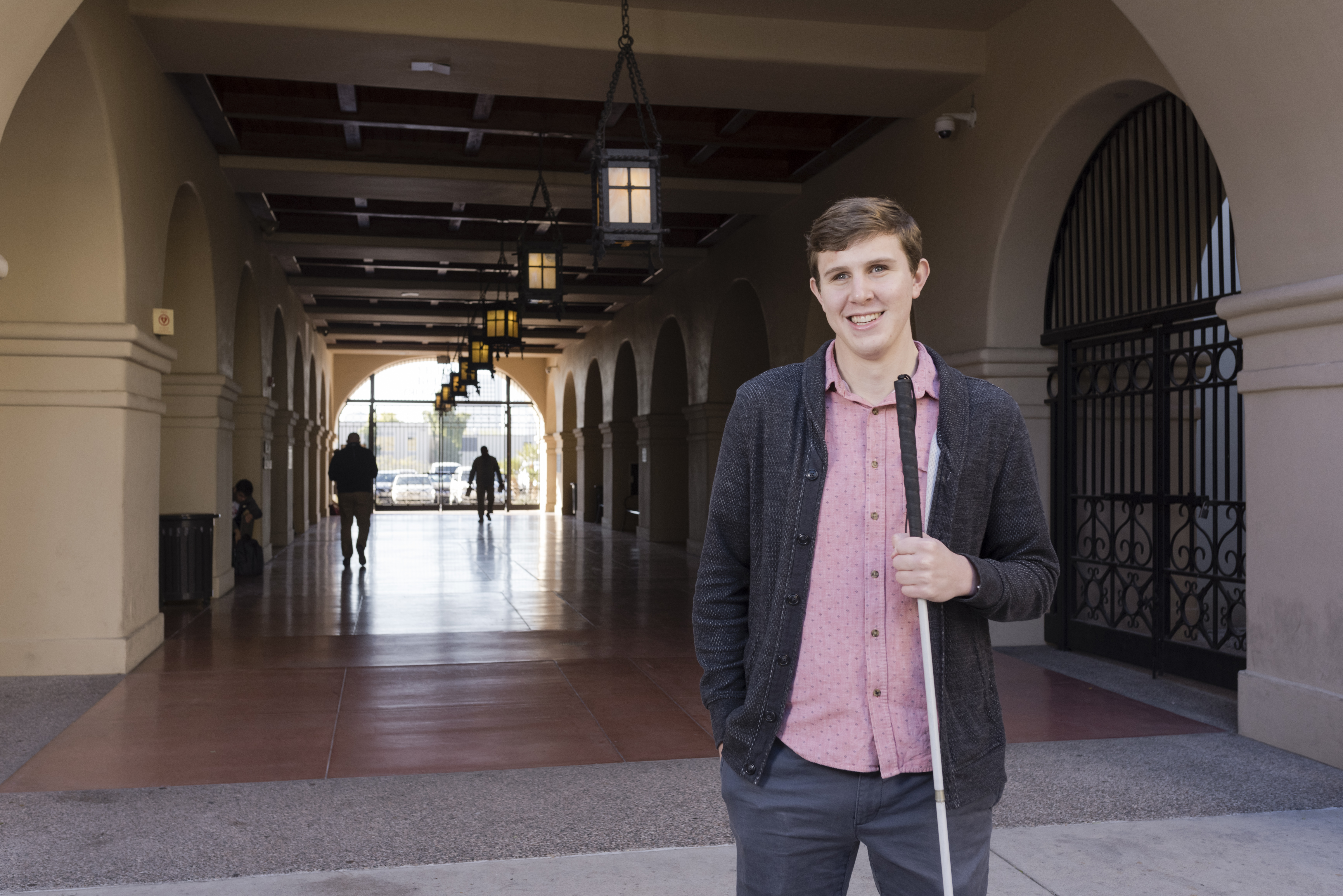Meet Max: High school history teacher, adventurer, and self-driving pioneer who is legally blind
June 20, 2019
Partnered with Foundation for Blind Children

Meet Max. He’s a high school history teacher at Brophy Preparatory Academy in Phoenix, Arizona. Max first fell in love with history when he attended Brophy himself as a student. He later majored in the subject in college and spent the last year teaching students about historical events that have changed the world.
Max believes that self-driving technology holds the promise to change transportation in a similarly transformative way. For Max, the promise of self-driving technology is personal. Why? Because Max is legally blind.
The Grand Canyon vs. the grocery store
Max’s parents learned he was blind when he was three months old. His family joined the incredible community at the Foundation for Blind Children where they helped Max and his family learn how technology can help people who are blind navigate the world.
It was there that Max also developed a taste for adventure. Through the Foundation for Blind Children’s Blind Buccaneers program, Max has hiked the Grand Canyon, climbed Mount Kilimanjaro, swum from Alcatraz to San Francisco, and accomplished things many people only dream of... all before the age of 25.
But in the car-dependent city of Phoenix, Max depends on friends, family, and public transportation for basic transportation to and from everyday destinations, like the grocery store.
“I need to rely on others for that basic requirement of life,” Max said. “It’s limiting.”
“This is amazing”
In March 2019, Max took his very first self-driving car ride with his girlfriend Lilian.
Lilian said she believes fully self-driving technology can benefit everyone, not only those people who cannot currently drive.
“It'd be so convenient for me, who has the option to drive,” Lilian explained, “but for someone who doesn't have that option, he [Max] can be independent, he can do things for himself.”
Max said he believes fully self-driving technology will not only improve road safety, but also give him greater mobility independence because he will no longer have to rely on others to get around.
“From a self-esteem point of view, it would be great,” Max says. “From a practical point of view, it would be life-changing.”
Improving safety and independence for those who cannot drive
Max’s story reflects a shared problem with current transportation options today. An estimated 1.3 million people in the U.S. are legally blind and that number is expected to reach two million by 2050. Often, people who are blind or who have low vision live in car-dependent communities and must rely on others to take them where they need to go.
Let’s Talk Self-Driving is teaming up with the Foundation for Blind Children to share Max’s story with the goal of raising awareness about the transportation challenges facing people who are blind, and how technology holds the potential to expand their mobility options.
The Foundation for Blind Children is a Phoenix-based organization serving people with vision loss of all ages and working to help them achieve greater independence.
Potential to transform society
Fully self-driving technology offers the promise to improve independence for people who are blind who will never get a driver’s license. Because the goal of fully self-driving technology like Waymo’s is to never require a human driver during the trip, people who cannot drive today will have a whole new transportation option.
Since Waymo’s fully self-driving technology is designed to be a cautious and defensive driver that will never get distracted, tired, or angry, it holds the promise to make our roads safer too.
Accessibility is something Waymo cares about deeply. From the start, Waymo has been focused on building a culture of respect by listening to and working with the disability community. Waymo is working with the Foundation for Blind Children and other organizations to test self-driving technology with people who are blind and low vision to improve the experience of riding in a self-driving car for all riders. Max said he’s looking forward to a future where fully self-driving technology will give him control of every aspect of his life.
Max added, “I could jump in my car, and go wherever I want.”
Sign up now to receive more stories like Max’s and learn where Waymo is headed next.
Sign Up
Join us in the most important conversations about how autonomous driving technology may shape the future of safety, mobility, community, and society.


